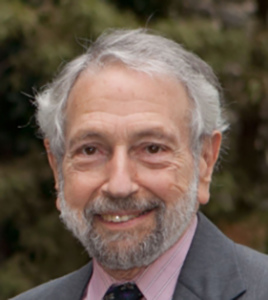News
Profiles in Giving Back: Dr. Saul Sternberg

When offered the Woodrow Wilson Fellowship, Dr. Saul Sternberg WF ‘54 turned down two other fellowships for the opportunity to take his studies in a different direction.
“I decided to explore the possibilities in the social sciences by going to a department that would permit that, which turned out to be Harvard’s Department of Social Relations,” says Dr. Sternberg. There he was able to explore anthropology, sociology, clinical psychology, and social psychology, at a graduate level.
As a young mathematician looking to do something useful for the world, Dr. Sternberg found it a congenial place to hone his skills and interests. The opportunity granted by the Woodrow Wilson Fellowship led to Dr. Sternberg’s long and productive career using mathematics and laboratory experiments in the study of human information processing.
After completing his Ph.D. at Harvard in 1960, Dr. Sternberg held a postdoctoral fellowship in mathematical statistics at the University of Cambridge, took up his first academic post at the University of Pennsylvania, and then went on to a research position at Bell Telephone Laboratories for more than two decades. While there, he conducted research in perception, memory, and the control of action, and for fifteen years headed the Human Information Processing Research Department.
“I thought of myself as a teacher at the university level,” says Dr. Sternberg, “even with 20 years at Bell Labs, which was not a teaching institution but at which a lot of teaching happened.” In 1985 he returned to Penn, where he is a Professor of Psychology.
The impact of Dr. Sternberg’s theoretical and empirical contributions to psychology has been recognized by several organizations, including the National Academy of Sciences, which elected him a member in 1982.
Continuing to seek ways to do good for society, Dr. Sternberg supports organizations he believes in and gives back to those from which he has benefited. He has been a loyal donor to the Woodrow Wilson Foundation for many years.
“I was in favor of the goals of the Foundation when I got my award,” said Dr. Sternberg. “Of course, some of the goals have changed, but they’ve changed in a direction I also favor: Developing good teachers at the secondary school level is really important.”
###
This story appeared in the fall/winter 2017 issue of Fellowship, the newsletter of the Woodrow Wilson Foundation. To see the full newsletter, click here.

